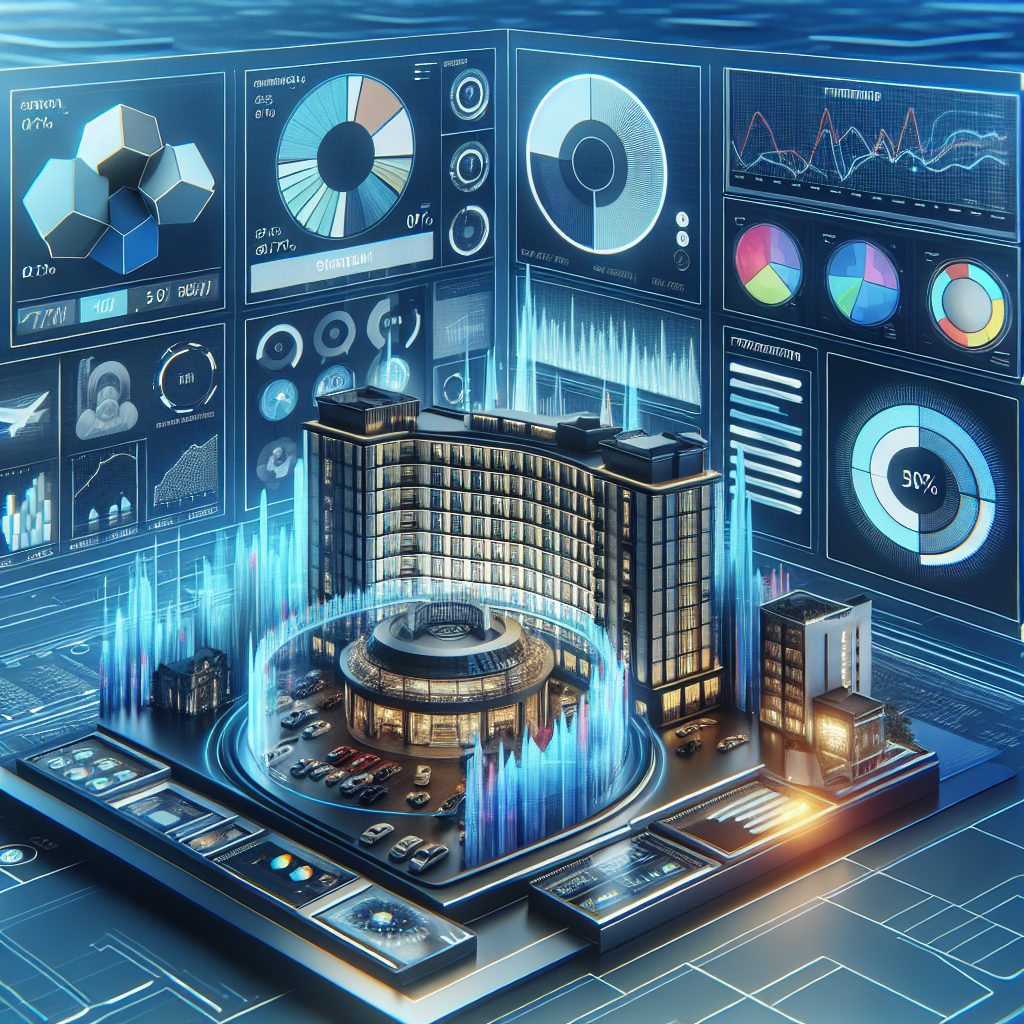Artificial Intelligence (AI) is revolutionizing the way hotels operate, particularly in the area of revenue management and forecasting. By harnessing the power of AI, hoteliers can optimize pricing strategies, maximize revenue, and improve overall performance. In this article, we will explore the impact of AI on hotel revenue management and forecasting, as well as address some frequently asked questions about this cutting-edge technology.
Impact of AI on Hotel Revenue Management:
1. Dynamic Pricing:
AI-powered revenue management systems can analyze a vast amount of data in real-time to optimize pricing strategies based on demand, market trends, and competitor pricing. This enables hotels to set dynamic prices that maximize revenue and occupancy rates.
2. Personalized Offers:
AI algorithms can segment customers based on their preferences, booking history, and behavior to create personalized offers and packages. By targeting the right audience with the right offer at the right time, hotels can increase bookings and drive revenue.
3. Demand Forecasting:
AI can accurately forecast demand by analyzing historical data, booking patterns, and external factors such as weather, events, and holidays. This allows hotels to anticipate fluctuations in demand and adjust pricing and inventory accordingly.
4. Automation:
AI-powered revenue management systems can automate routine tasks such as rate updates, inventory management, and reporting. This frees up time for hotel staff to focus on strategic decision-making and guest experience.
5. Competitive Analysis:
AI can monitor competitor pricing, availability, and marketing strategies in real-time, enabling hotels to stay ahead of the competition and adjust their pricing and marketing tactics accordingly.
6. Revenue Optimization:
By leveraging AI algorithms, hotels can optimize revenue across all distribution channels, including direct booking websites, online travel agencies (OTAs), and offline channels. This helps hotels maximize their revenue potential and reach a wider audience.
Impact of AI on Hotel Forecasting:
1. Accurate Predictions:
AI-powered forecasting models can analyze historical data, market trends, and external factors to predict future demand with a high degree of accuracy. This allows hotels to make informed decisions about pricing, inventory management, and marketing campaigns.
2. Real-Time Updates:
AI can provide real-time updates on market conditions, competitor pricing, and demand trends, allowing hotels to adjust their forecasting models and strategies on the fly. This agility is essential in a fast-paced industry like hospitality.
3. Scenario Analysis:
AI algorithms can simulate different scenarios and predict the impact of various factors on hotel performance, such as changes in pricing, marketing campaigns, or external events. This helps hotels make proactive decisions and mitigate risks.
4. Data Integration:
AI can integrate data from multiple sources, such as booking engines, property management systems, and customer relationship management platforms, to provide a comprehensive view of hotel performance and forecasting accuracy.
5. Continuous Improvement:
AI-powered forecasting models can learn from past performance and adjust their algorithms over time to improve accuracy and reliability. This iterative process helps hotels stay ahead of market trends and optimize their revenue potential.
Frequently Asked Questions about AI in Hotel Revenue Management and Forecasting:
Q: How can AI help hotels increase revenue?
A: AI can help hotels increase revenue by optimizing pricing strategies, personalized offers, demand forecasting, automation of routine tasks, competitive analysis, and revenue optimization across all distribution channels.
Q: Can AI accurately predict future demand for hotels?
A: Yes, AI-powered forecasting models can analyze historical data, market trends, and external factors to predict future demand with a high degree of accuracy. This allows hotels to make informed decisions about pricing, inventory management, and marketing campaigns.
Q: Is AI only suitable for large hotels or can small hotels benefit from it as well?
A: AI can benefit hotels of all sizes, as it can be tailored to meet the specific needs and budget constraints of each property. Even small hotels can leverage AI to optimize revenue management and forecasting.
Q: How can hotels integrate AI into their existing systems?
A: Hotels can integrate AI into their existing systems by working with AI vendors or technology partners who specialize in hospitality solutions. These vendors can help hotels implement AI-powered revenue management and forecasting systems that seamlessly integrate with their current technology stack.
Q: What are the key challenges of implementing AI in hotel revenue management and forecasting?
A: The key challenges of implementing AI in hotel revenue management and forecasting include data quality and integration, staff training and adoption, cost considerations, and the need for ongoing support and maintenance.
In conclusion, AI is transforming the way hotels manage their revenue and forecast demand. By leveraging the power of AI, hotels can optimize pricing strategies, personalize offers, forecast demand accurately, automate routine tasks, analyze competitors, and maximize revenue across all distribution channels. As AI technology continues to evolve, hotels that embrace AI in their revenue management and forecasting strategies will gain a competitive edge in the market and drive sustainable growth.

